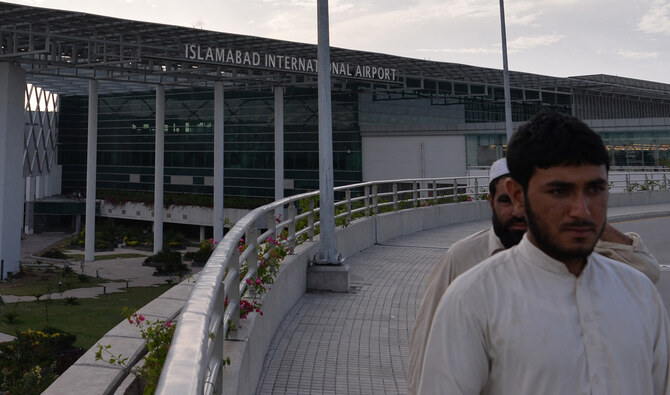KARACHI: Saudi Arabia and Pakistan are on the verge of finalizing a game-changing $14 billion deal for an advanced oil refinery, expected to boost the South Asian state’s crude oil processing capacity, according to an exclusive conversation with the country’s petroleum minister on Saturday.
The multibillion-dollar state-of-the-art oil refinery project, with a capacity to process 350,000-450,000 barrels of crude oil per day, was initially agreed upon during the official visit of Saudi Crown Prince Mohammed bin Salman in 2019.
As per the plan, a petrochemical complex would also be set up along with the refinery.
“The good news ... is that we are in very advanced stages of finalizing the deal between Pakistan and the Kingdom of Saudi Arabia and hopefully some other GCC [Gulf Cooperation Council] countries have shown some level of interest in participating in that deal through which we would set up a $10 to $14 billion world-class scaled refinery,” Dr. Musadik Malik, the petroleum minister, told Arab News on the sidelines of a meetup with journalists in Karachi.
“We are moving very fast on it,” he continued. “My personal aspiration and hope was to conclude this deal before the change of hands of the government.”
Pakistan is moving toward general elections after the current coalition administration finishes its constitutional term next month. However, Malik said most of the work had been done while expressing optimism that the next political government would be in a position to sign the refinery deal.
“I’m still very hopeful that we would move it at such advanced stages that it would be very easy for the incoming administration to finalize the deal and sign it,” he said.
Asked about the currencies that will be used in commercial deals for the refinery, the minister noted the government was open to trade in any currency.
“We are open to all kinds of currencies,” he said, adding: “We can do them in Saudi Riyal, we can do it in RMB [Chinese Yuan], we can do it in dollar, we can do it in pounds. This is an above-board business, so it doesn’t matter which currency it is.”
The refinery will be set up in Pakistan by Saudi Aramco which has already conducted the feasibility study and is currently analyzing the modalities, including the engineering work required for the project.
Last week, Aramco declined to comment about the current status of the project in response to an Arab News query.
The Aramco refinery project will increase Pakistan’s oil refining capacity which is currently about 450,000 barrels per day (bpd) which is equivalent to 20 million tons per annum. However, the country’s actual capacity utilization at this stage is around 11 million tons.
The mega oil refinery and petrochemical complex are expected to help Pakistan in technologically. Additionally, it will also be beneficial for skill enhancement and human capital development, direct and indirect employment generation, strengthening of allied sectors, and the country’s socioeconomic development.
















